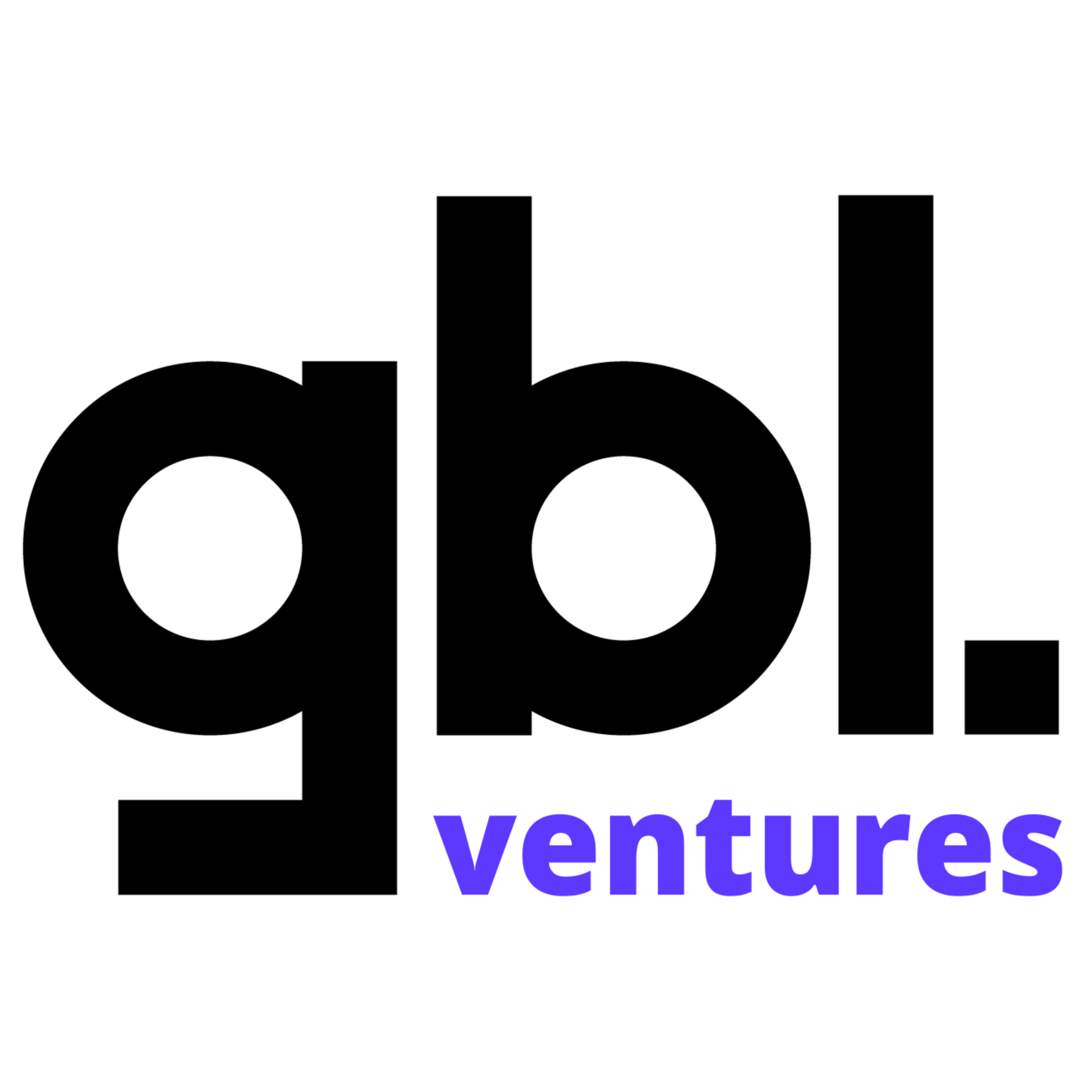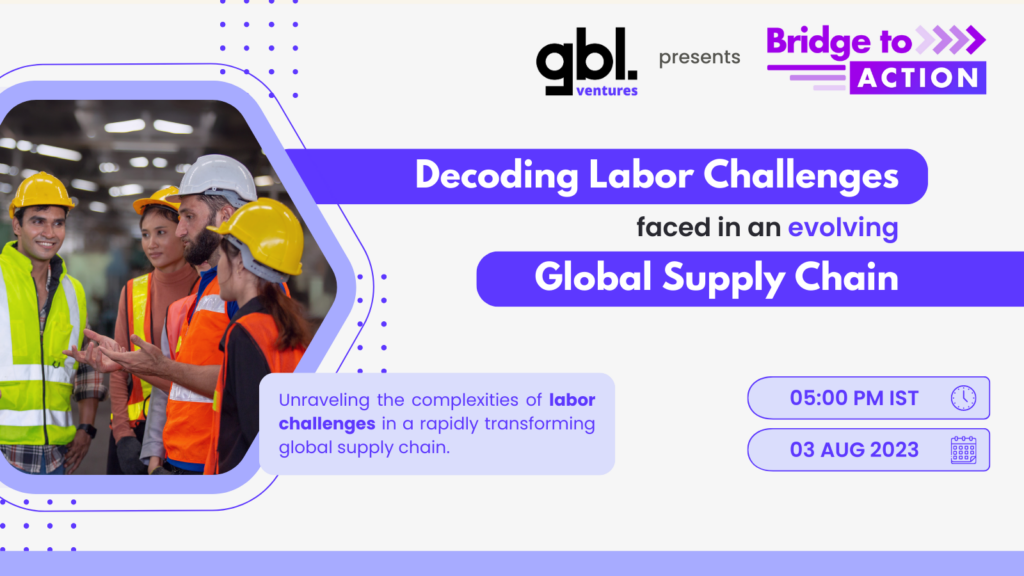GBL Ventures kickstarted the event series “Bridge to Action” with the event “Decoding Labor Challenges in an Evolving Global Supply Chain.” The series aims to bridge the gap between ideas and actions for sustainable change through a deeper dive into the multi-stakeholder perspectives around labor challenges.
The inaugural virtual event was held on August 3rd, 2023, featuring the following roster of industry experts from manufacturing and related segments:
- Maj. Gen. (Retired) Ramakrishnan VG – VP of People Operations, Texport Industries
- Kanishk Negi – Sustainable Procurement Director, Schneider Electric
- Nagarajan Chandru – Head of Sales, Growth & Marketing (Solar), AMS Technologies
The event was moderated by Mamta Pimoli, Associate Director at Good Business Lab and head of the Ventures vertical, who also shared her insights.
Focused on understanding the business perspective behind labor challenges in manufacturing and what needs to be done for mitigation, the discussion touched upon crucial ideas, including brand-supplier dynamics, industrial relations, operational efficiency, and the need for upskilling.
The panel highlighted that at the core of the challenge lies the complexity of navigating the local and cultural context to build a strong relationship with workers. As India moves to a gig economy structure, blue-collar workers are often undervalued and not provided optimal working conditions. This, in turn, exacerbates the issues of high attrition and absenteeism and further lowers productivity. The session also uncovered the seldom discussed operational angle and how improvements in capacity planning can reduce instances of long overtime hours and high-pressure environments that result in less-than-ideal worker treatment.
Our panel considered the changing regulatory landscape a positive move towards encouraging transparency and sustainability in the manufacturing ecosystem. However, it comes with the need to account for the local context again. It must be noted that training opportunities for workers were unanimously seen as a solution to improving worker relations and avoiding a skill mismatch that can worsen the labor shortage. While the discussion recognized existing efforts toward improving worker relations, better collaboration between larger brands, suppliers, and smaller manufacturers was identified as the need of the hour. Such associations hold the potential to facilitate their journey towards sustainability. All players must be equipped with the knowledge and resources to implement effective change.
Key Takeaways
- The socio-economic influence of local conditions on labor challenges must be accounted for by companies when looking to work with suppliers across various regions.
-
- This includes recognizing and respecting the community’s needs, values, and beliefs to boost worker loyalty and foster a better company-worker dynamic.
- Labor challenges are intertwined with operational challenges and require businesses to relook at their planning and the design of systems to ensure smooth running without putting excessive pressure on workers.
- Tackling labor challenges requires investing in workers, particularly skill development, to avoid a mismatch.
-
- This is especially important as we move to a more digitized society and, hence, a workplace where the introduction of machines can further worsen the labor shortage if workers aren’t allowed to upskill and grow with time.
- Brands, especially those with global standing, need to collaborate with suppliers and manufacturers to provide the knowledge and resources that help partners meet compliance standards and go beyond those to further normalize sustainable business practices within the organization.
-
- Lack of awareness and resources is one of the biggest hurdles preventing the widespread adoption of sustainability-focused solutions.
We will continue to build on these ideas and allied concepts in more comprehensive and fruitful discussions in the future. Keep an eye out on the GBL Ventures LinkedIn page for more information.

